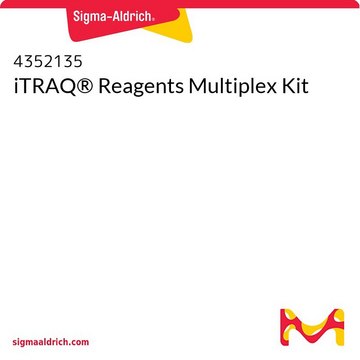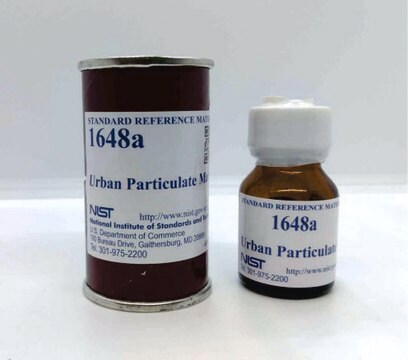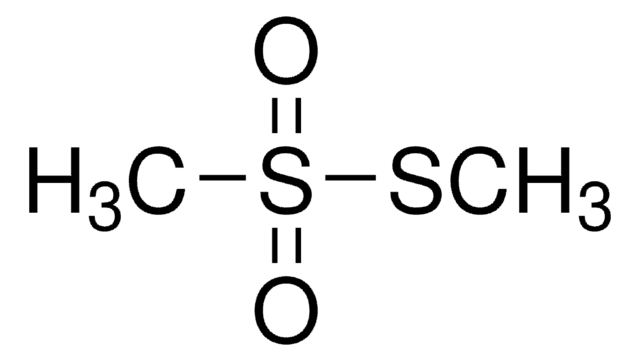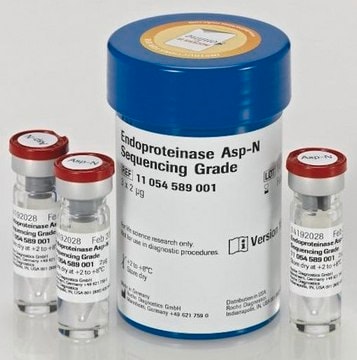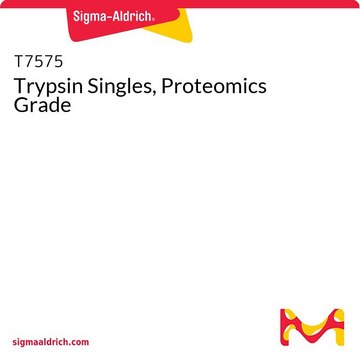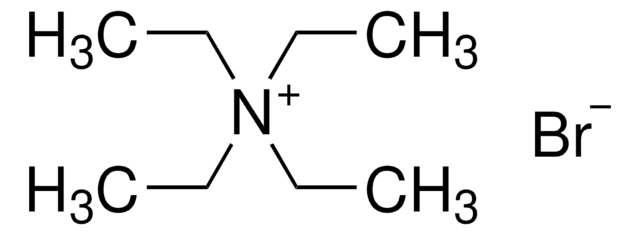4381662
iTRAQ® Reagent - 8PLEX One Assay Kit
Synonym(s):
isobaric tags for relative and absolute quantitation
About This Item
Recommended Products
storage temp.
−20°C
Looking for similar products? Visit Product Comparison Guide
General description
This kit contains the reagents in the equivalent SCIEX iChemistry® product number 4390811.
Application
- of digested total protein sample in mustard sprouts
- of the total protein in broccoli sprouts
- of the desalted peptides from different plants/intact chloroplasts
Features and Benefits
- Simultaneously identify and quantify proteins from multiple samples
- Expands protein and proteome coverage by labeling all peptides, including those with post-translational modifications (PTMs)
- Increases confidence in identification and quantitation from MS/MS spectra by tagging multiple peptides per protein
- Increases throughput and confidence in results for protein biomarker discovery studies
- Offers a simple workflow without sample fractionation for reduced-complexity samples, such as affinity pull-downs
- Provides the flexibility to multiplex up to eight different biological samples simultaneously in a single experiment
- Fully supported by ProteinPilot Software on all SCIEX proteomics LC/MS/MS platforms
Analysis Note
To view the Chemistry Quick Reference Card for the iTRAQ Reagents, please visit this Chemistry Quick Reference Card link.
Legal Information
Signal Word
Danger
Hazard Statements
Precautionary Statements
Hazard Classifications
Acute Tox. 4 Dermal - Acute Tox. 4 Inhalation - Acute Tox. 4 Oral - Eye Irrit. 2 - Flam. Liq. 2 - Skin Irrit. 2 - STOT SE 3
Target Organs
Central nervous system
Storage Class Code
3 - Flammable liquids
WGK
WGK 3
Flash Point(C)
2.0 °C - closed cup
Certificates of Analysis (COA)
Search for Certificates of Analysis (COA) by entering the products Lot/Batch Number. Lot and Batch Numbers can be found on a product’s label following the words ‘Lot’ or ‘Batch’.
Already Own This Product?
Find documentation for the products that you have recently purchased in the Document Library.
Customers Also Viewed
Our team of scientists has experience in all areas of research including Life Science, Material Science, Chemical Synthesis, Chromatography, Analytical and many others.
Contact Technical Service
